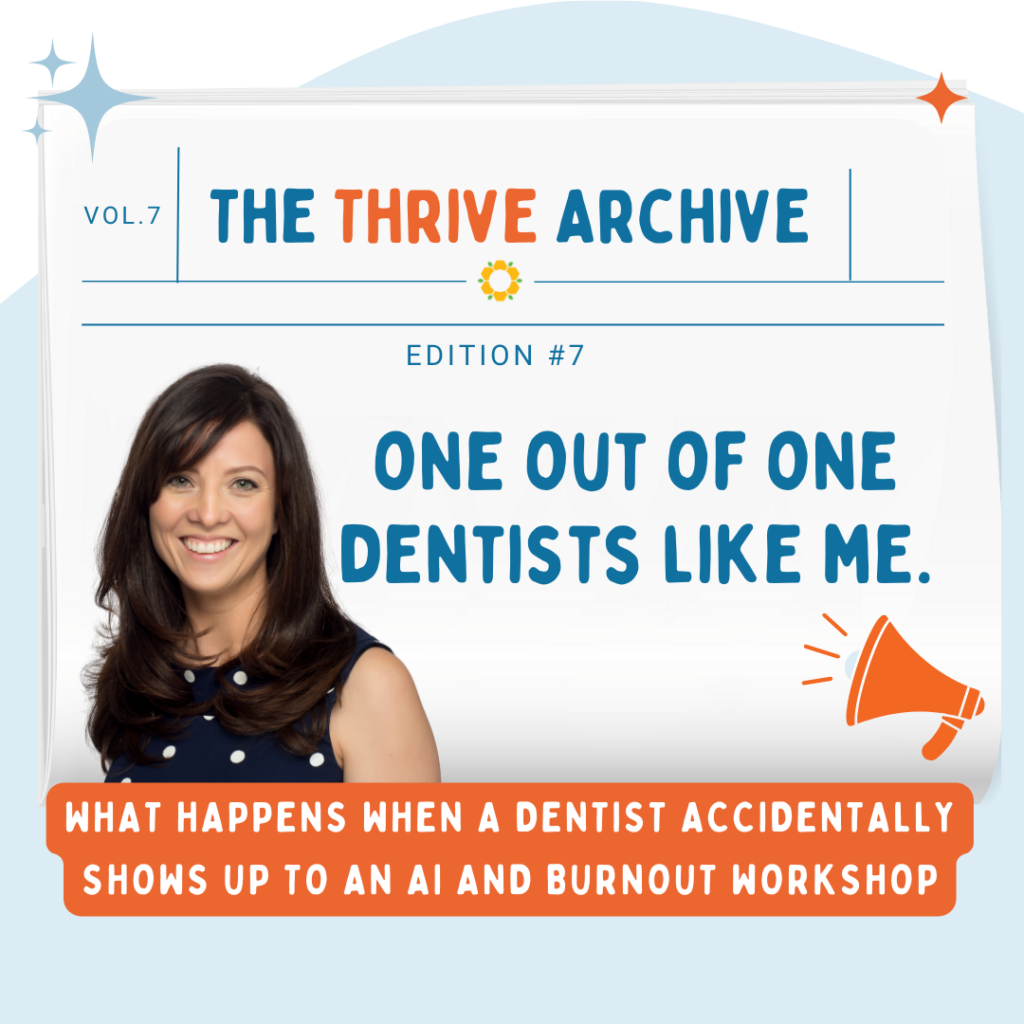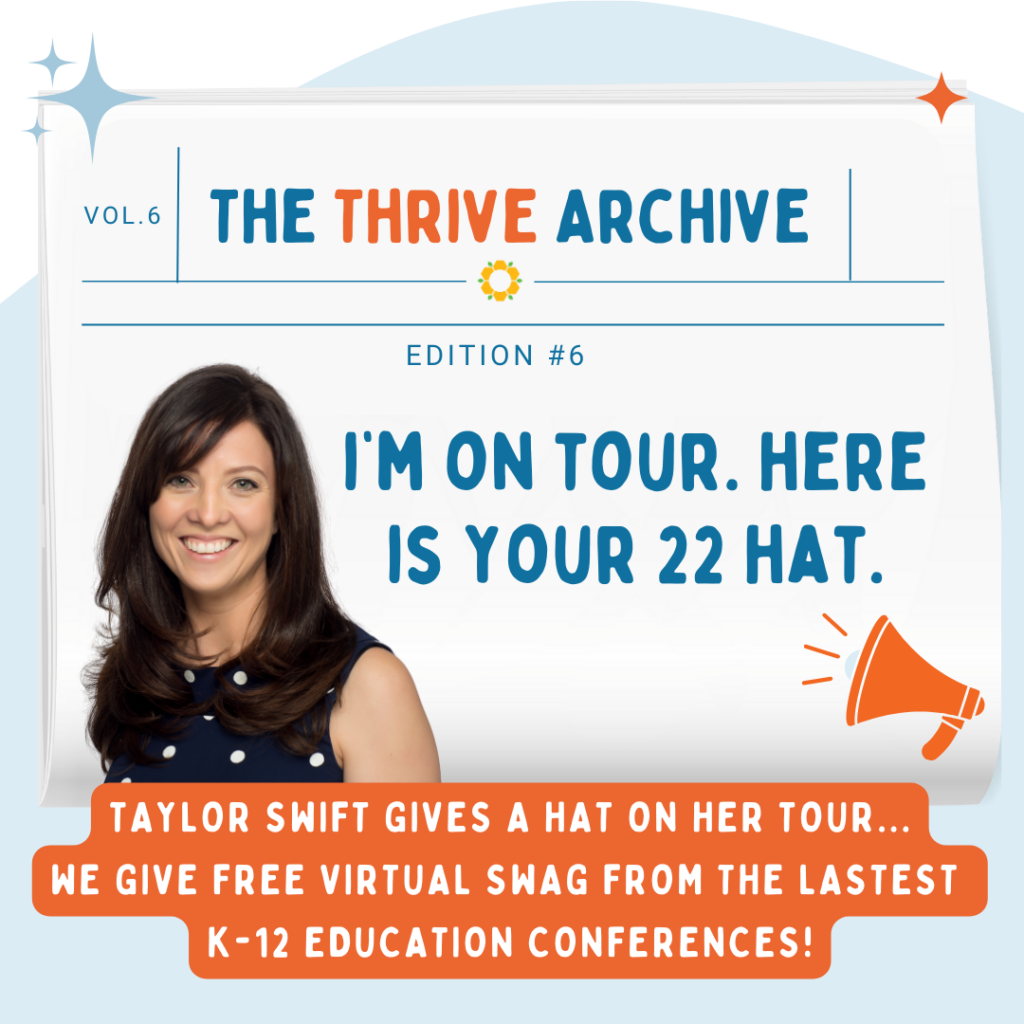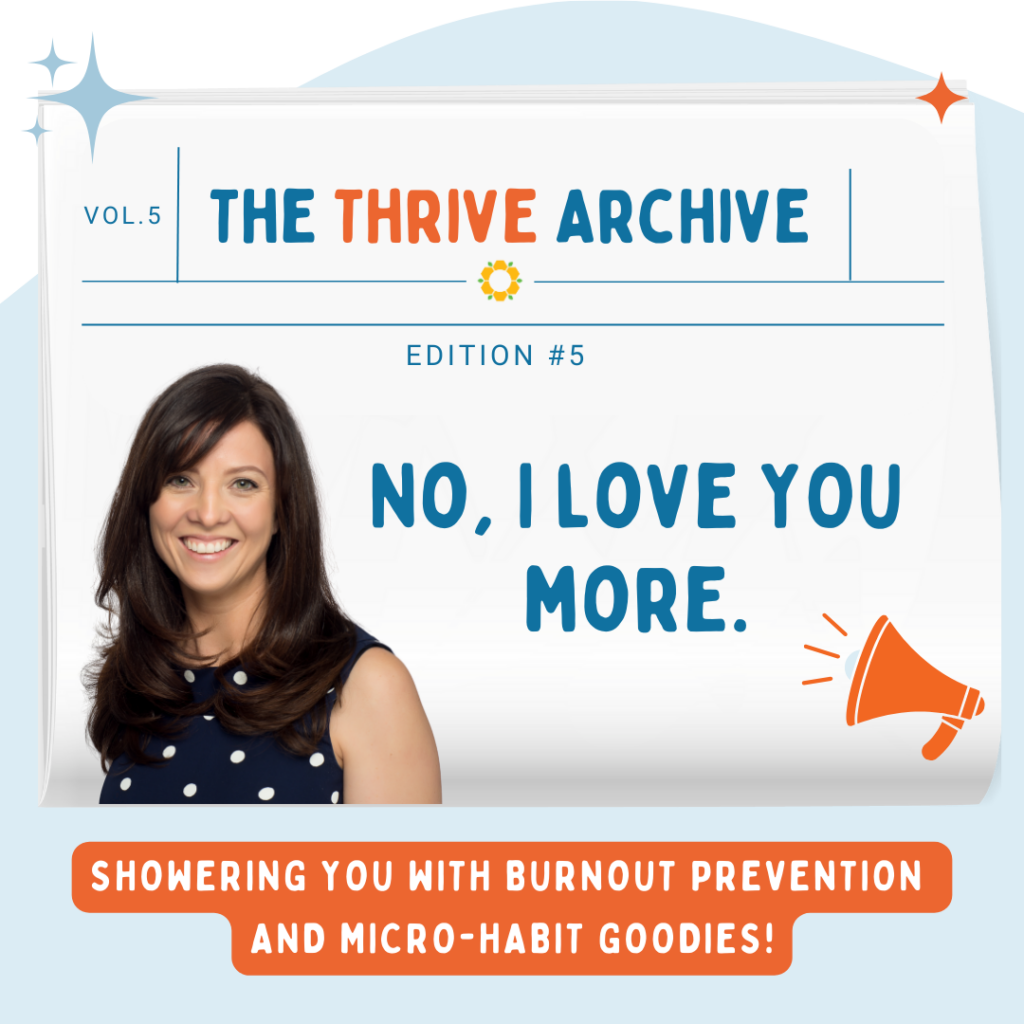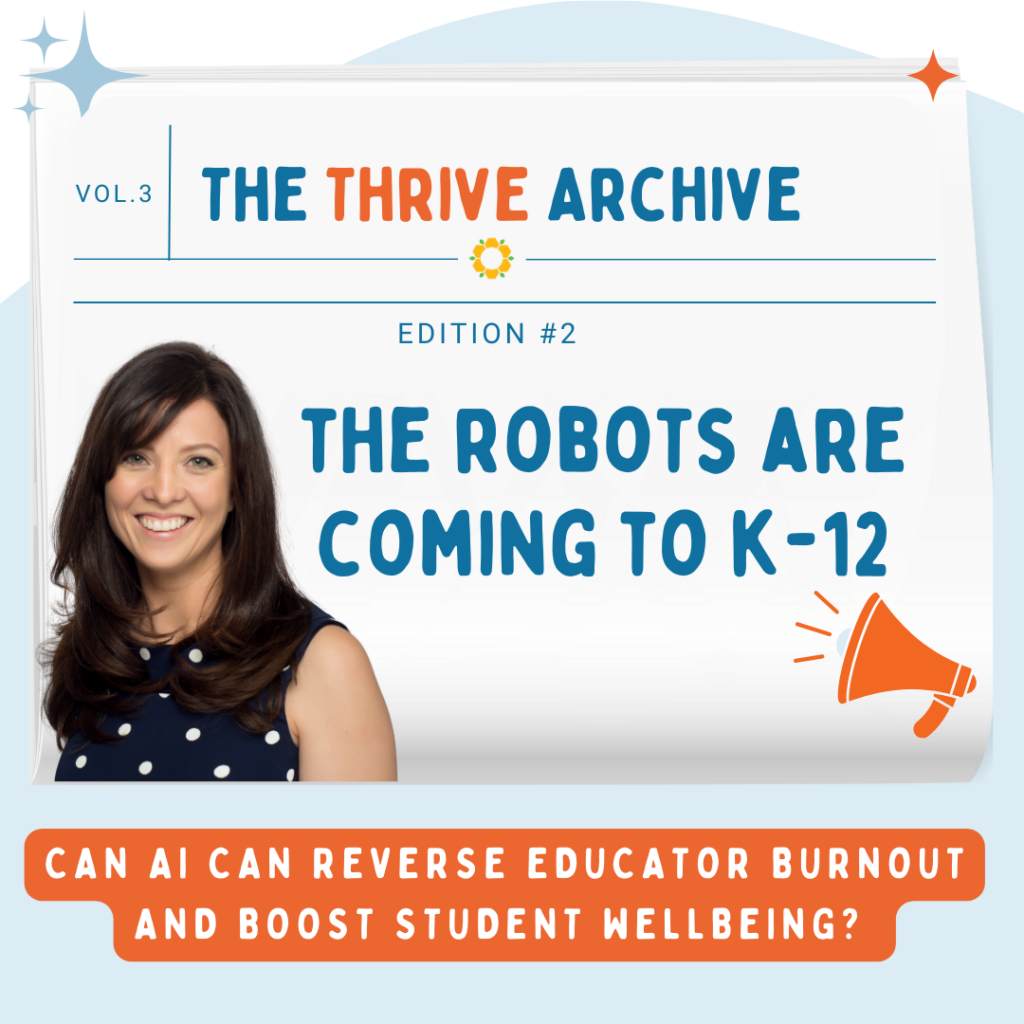- News

On the Friday before Spring Break, I hosted a live training for school psychologists on how to use AI and Chat GPT for burnout prevention and work automation. There was so much interest, I had to buy a bigger zoom room! Folks used the words “game changer” and dropped this emoji 🤯. But the best review came from a dentist’s chair.
One school psychologist was listening to the webinar at the dentist’s office, and the dentist shared with her that he was enjoying it too! The school psychologist shared in the chat that his biggest takeaway message from the webinar was about the importance of acceptance. I had just shared that stress comes not just from a stressful event itself but also by resisting that it is happening. When we resist, we add stress to our stress.
So yes, it’s stressful that school psychologists have high caseloads, that teachers are now essentially mental health first responders in addition to all that they already do, and that parents are dissatisfied with the services their children with special education needs are receiving in underfunded schools.
And yet, there’s power in allowing the feeling, accepting reality, and deciding what to do.
When it comes to acceptance, you don’t have to like it; just accept that it’s happening for now. The real power resides in that small next step. And you can’t take a step forward if you’re expending all your energy shaking your fist and stamping your feet all day that the stress is happening.
The dentist’s favorite quote:
“Don’t pick a fight with reality. Accept it. Then do one thing in your control.”
So basically, one out of one dentists recommends this training! Ha!
If you’re a school psychologist (or dentist) and you missed the live event or had to leave early, you can still get the goods by catching the recorded replay for a limited time only. Click here to watch the replay!

How to Address the K-12 Mental Health Crisis
Speaking of not picking a fight with reality…the reality is that mental health issues are on the rise in our students, behavioral challenges are up, and students’ excessive screen time is impacting mental health and learning outcomes.
So, what is something in our hands to do about it? Let’s look at key protective factors for stress and trauma: the presence of one caring adult and students having strong executive functioning and self-regulation skills.
When caregivers and teachers are equipped to support the emotional and behavioral needs of their children, the negative effects of stress and adversity are mitigated. Further, when students are taught executive functioning and emotional regulation skills, they are more resilient in the face of struggles.

Combining these two protective factors, our organization, Thriving Students Collective is proud to have partnered with over 30 school districts this past year to provide parenting and educator workshops on helping kids with anxiety, supporting students who learn differently, managing screen time, and boosting executive functioning at home and in school.
In addition to workshops, we provide 24/7 access caregiver support in our Thrive Hive TV Network, a streaming service and app for “just in time” videos to learn how to help children with emotional, behavioral, and learning challenges thrive.
Combined with our “Thriving Educator” and “Thriving School Psychologist” online professional development platforms for teachers, school psychologists, social workers, and special educators, we provide 360 degree wraparound support for students.
And because I’m a school psychologist, I also love data! I am thrilled to share that our latest Empirical Education report shows that our district partnerships reached over 820,000 students last year! Further, the impact study showed that our district partnerships represent more ethnically and racially diverse populations than the national average, which means that we are successfully reaching educators who support students in special education, multilingual learners, and students of color.
The reality is, in these challenging times, there is something we can do together. In fact, research suggests that collective efficacy, or the belief that we can do whatever it takes to support student achievement, is one of the most powerful predictors of student achievement. Change starts with the belief of adults that we can make change, even in the face of real challenges. If you are interested in learning more about our platform and services, click here!
How to Help Teens with Executive Functioning and Screen Time
Another reality is teens’ focus is interrupted, on average, every 90 seconds. Something as simple as an audible notification can draw focus away from a task. And when humans are distracted, it takes 23 minutes to get back to that previous level of focus! In schools, that means that in a 55-minute class period, multiple distractions across the classroom create an almost impossible task of staying on topic and focused.
What can be done? Check out this article from KQED Mind/Shift where I share 10 hacks to boost teen’s executive functioning and manage screen time.

Want more executive functioning strategies for teens? Check out our How to Teach Children and Teens Executive Functioning masterclass for educators and mental health providers.
The Power of A Mindful Pause…
I was on a women in leadership podcast once, and the host asked me what I like to do for fun. I paused. I thought really hard. And then I responded, “Make cool visuals about psychological concepts?” I’m pretty sure this counts as a hobby, right?!? Nonetheless, here’s a cool visual I made about the importance of mindfulness for my new book, Small Habits Create Big Changes: Strategies to Thrive in Your Education Career. (This book is the companion to our popular, “How to Reverse Educator Burnout” program for K12 educators).

In a sea of interventions for students’ wellbeing in our schools, we cannot overlook the importance of the wellbeing of the ADULTS who are meant to be executing on these interventions! Emotional regulation in our students starts with our own regulation. When we practice and teach mindful pauses ourselves, we can RESPOND rather than REACT to stressors, and be the “living lesson plan” for our students to do the same. 🧡
Embarrassing TikToks of the Month
Here’s me fighting myself every day…choose your character and click here to see who wins…
And here’s me singing “You’re Gorgeous” by Taylor Swift with my tech team, hard at work to elevate our Thriving Students Platform! (Click here or on the image to see the full cringeworthy performance.)
Stay tuned for this summer’s launch of our gorgeous AI-powered time management tools for educators, customized learning plans for burnout prevention, and gamified micro-credential professional development and curriculum to support students’ mental health and learning!
One More Thing!
While our professional development platform is not just for school psychologists, we will kick off launch of our newly designed platform with “Camp Lily,” an AI summer camp for school psychologists that will teach them AI for their own workflow and how to teach teachers and students to use AI responsibly! (Our official mascot is Lily the Frog, reasons for which you can learn here).

And yes, I’m totally biased, but since school psychs work with parents, teachers, special educators, administrators, community agencies, and students, they are incredible lynchpins and ambassadors of best practice and innovation for their school communities!
If you’re a school psychologist, or you support school psychologists, check out Camp Lily here!
(Group rates available for teams…click here to connect with us!)
See you in June for the next Thrive Archive digest!

If you’re interested in being a part of the Thriving Students Collective community and would like more information about how to bring the Thriving Students Platform to your school or district, CLICK HERE to connect with us.
Want more K12 News You Can Use? Subscribe here!
***
Dr. Rebecca Branstetter is a school psychologist and co-founder of The Thriving Students Collective, which provides professional development, engaging online courses, and a supportive online community that prioritizes whole-school wellness and equips educators and parents with practical tools to empower every learner’s success. She also has a TikTok account all about burnout prevention in K12 that her middle school daughter has endorsed as “Cringe, but good dancing.”




